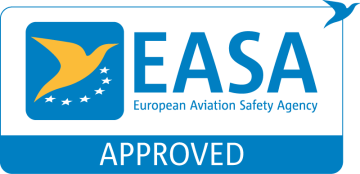September 29, 2023
Why is the Pilot Shortage Expected?
As you may have heard, pilots are in high demand across the industry, with a pilot shortage both in the short term and looming over the industry for decades to come.
There are many factors involved, including an ageing work force and the continuously growing demand for air travel. However, this creates a very positive market for aspiring pilots. If you are considering a career as a professional airline pilot, there has never been a better time to get on this career path. You’ll benefit for years to come.
Why is there a Pilot Shortage?
For many years, the core demographic of professional airline pilots has been 40-60-year-olds who first entered the industry prior to the 2000s or through a military-trained background. However, with an FAA-mandated retirement age of 65 years old, the major airlines in the U.S. are now facing a situation where thousands of their pilots are set to retire within the next few years. This represents a significant portion of the workforce and is the leading cause of pilot shortages in the U.S..
For the major airlines, the solution to this pilot shortage (at least in the short term) is to hire pilots from the regional airlines. However, this only pushes the issue to a different level and can’t be seen as a long term solution.
There have been many studies into this pilot shortage to estimate its size and factors, with the most comprehensive study coming from aircraft manufacturer, Boeing.
Boeing have studied the trends of airline hiring, aircraft orders, pilots in training, industry trends and macro-economic forecasts to come up with an estimate which they update periodically. The current estimate for the next 20 years is that 649,000 new pilots will be required worldwide, with 130,000 of these in North America. As the whole market expands, expectations are similar for other staff in the aviation industry, such as mechanics and cabin crew.
This data is backed up by Airbus which estimates around 40,850 new aircraft will be ordered in a similar timeframe, representing over 480,000 pilots..
What does the Pilot Shortage mean to Pilots?
As the demand for pilots grows and the supply is not able to keep pace, then the reality is that the price for those pilots will increase. This will often take the form of increased salaries and bonuses. Bonuses generally come in the form of hiring bonuses, retention bonuses and performance bonuses. Additionally, pilot promotions can be expected to happen quicker than in previous years. This represents even higher salaries for these pilots at the leading edge of the hiring curve.
For airline pilots, pilot seniority has a massive effect, impacting pay, routes, aircraft, benefits and more. This means pilots hired in the coming years will benefit for decades to come as they obtain higher seniority very quickly. All these factors mean there has never been a better time to start your training to become an airline pilot and take advantage of the pilot shortage.
Pilot Shortage in 2023
The airline pilot shortage continues as airlines struggle to increase staff and maintain their flight routes. As the shortage continues to gain regular headlines, it’s important to recognize that there are long-term driving factors influencing these circumstances.
In order for airlines to manage their business during the COVID-19 pandemic, they offered incentives to pilots for early retirement in the form of large monetary buyouts. Many pilots took this lucrative offer and now these pilots cannot be quickly rehired or easily replaced.
Additionally, it is critical for working pilots to have regular flying hours in the aircraft they fly. This means that, if they were not flying regularly during 2020 and 2021, they required further simulator training before they could fly aircraft with passengers. This considerably high demand for new pilots, coupled with the challenge of securing simulator time to retain existing pilots, has led to the airlines competing for limited training resources.
This need for pilots is expected to continue for several years to come and may never truly end. Airlines are hiring thousands of pilots, but the reality is that 649,000 pilots are required in the next 20 years worldwide. In order to hire and retain pilots, airlines are increasing salaries and improving benefit plans. Taking all of these factors into consideration, there has never been a better time to be a trainee pilot.



